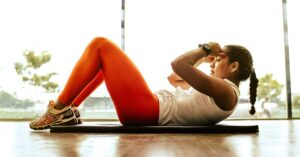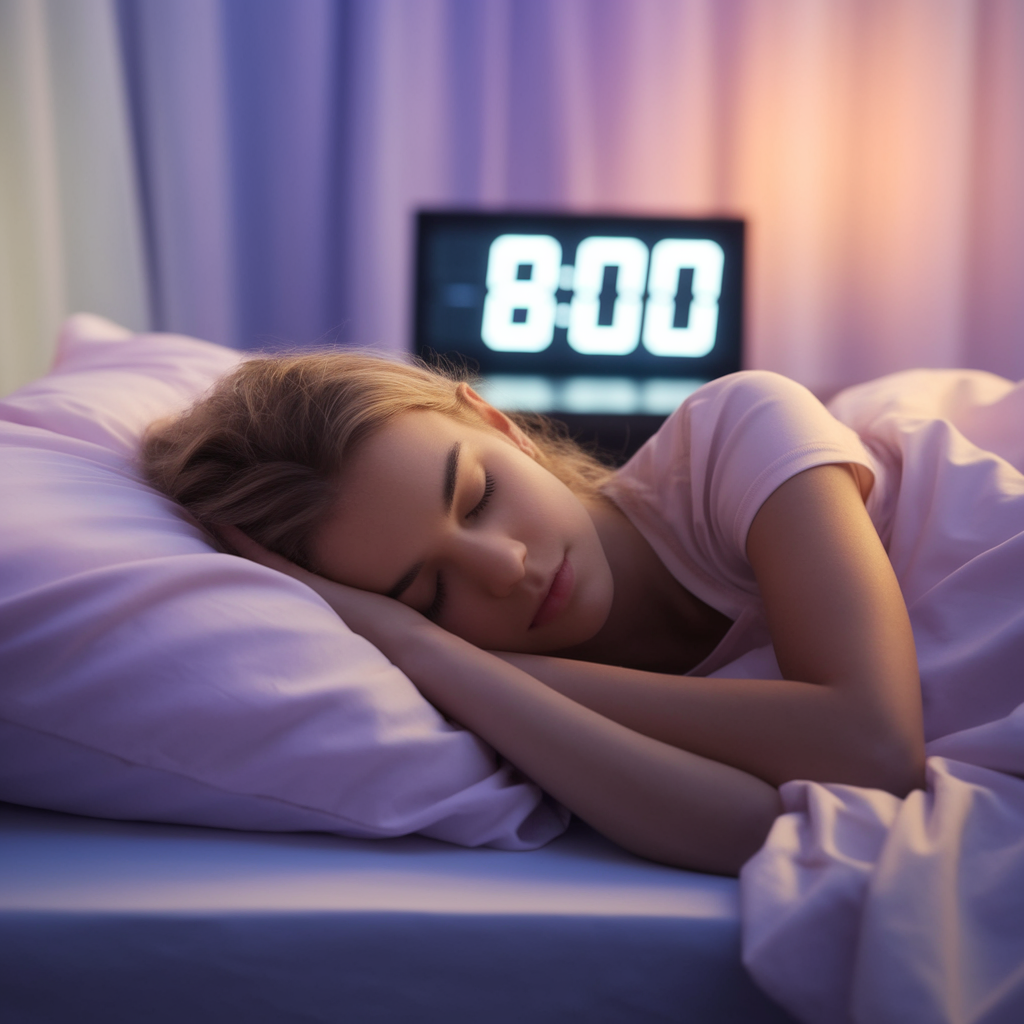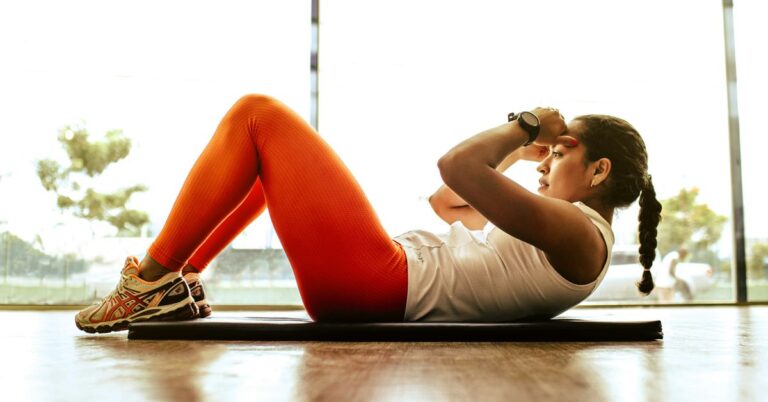The Connection Between Sleep and Athletic Recovery
When was the last time you woke up after a long night’s sleep and thought, “Wow, I feel like I could run a marathon!”? For many athletes, that feeling is not just a morning after a good snooze; it’s a vital component of their training regimen. Sleep, often overshadowed by rigorous workouts and nutritional plans, plays a critical role in athletic recovery. In fact, it could be argued that without adequate sleep, all those hours spent perfecting that killer serve or refining your sprint technique might just be wasted.
Understanding Sleep: The Athlete’s Secret Weapon
Let’s dive a little deeper into the science of sleep. Sleep is a complex biological function that involves several stages, including REM (Rapid Eye Movement) sleep and non-REM sleep. Each of these stages has distinct functions that contribute to recovery. While you might be tempted to think of sleep as simply a time to rest, it’s actually an active process where the body works hard to repair itself.
During sleep, your body releases growth hormones, which are crucial for muscle development and repair. It’s during these hours of shut-eye that your muscles regenerate from the stress of training. Think of sleep as your personal pit crew. Just like a race car needs to be serviced to perform at its best, your body needs that time to refuel and repair.
The Price of Sleep Deprivation
Now, let’s talk about the dark side of this equation: sleep deprivation. It’s no secret that many athletes struggle with getting enough Zs, often sacrificing sleep for training or competition. But what’s the real cost? Research suggests that sleep deprivation can lead to:
- Decreased athletic performance
- Impaired cognitive function
- Increased risk of injuries
- Longer recovery times
- Negative impacts on mental health
Consider this: a study published in the journal Sleep found that athletes who consistently get less than seven hours of sleep per night are more prone to injuries. It’s as if they’re running on a treadmill set to a steep incline—eventually, they’re bound to trip and fall. I once interviewed a professional soccer player who shared how a few sleepless nights after intense matches left him feeling sluggish, resulting in a missed penalty kick that cost his team the game. That’s the kind of pressure that can build up when sleep quality takes a backseat.
How Sleep Affects Performance
So, what exactly happens when an athlete is well-rested? The benefits are numerous and can be grouped into several key areas:
1. Enhanced Physical Performance
A good night’s sleep can significantly improve strength, speed, and endurance. Studies have shown that athletes who sleep for at least eight hours exhibit improved reaction times and greater levels of stamina. It’s almost like plugging in your phone to charge overnight—when you wake up, it’s ready to go!
2. Improved Mental Sharpness
Sleep isn’t just about physical recovery; it’s also essential for cognitive function. Athletes make split-second decisions in high-pressure situations, and a lack of sleep can slow reaction times and impair judgement. Just picture a basketball player missing an open shot because they didn’t notice the defender sneaking up behind them. Yikes!
3. Mood Regulation
Let’s not forget the psychological aspect. Sleep has a profound effect on mood and emotional state. When athletes are well-rested, they tend to be more focused, less anxious, and more motivated. Conversely, sleep deprivation can lead to irritability and mood swings—definitely not ideal for team dynamics. Remember that time I lost my temper after a bad night’s sleep? Not my finest moment.
4. Immune Function
Athletes are particularly susceptible to infections and illnesses due to the physical stress they undergo. Sleep is vital for maintaining a robust immune system. Research indicates that those who sleep less than seven hours per night are three times more likely to catch a cold. As if the physical demands of training weren’t enough, who needs the added burden of a sniffly nose?
Strategies for Better Sleep
Alright, so we’ve established that sleep is crucial for athletic recovery. But how do we ensure we’re getting that quality rest? Here are some strategies that can help:
1. Establish a Sleep Routine
Consistency is key when it comes to sleep. Try to go to bed and wake up at the same time every day, even on weekends. I know, I know—who doesn’t love a Saturday sleep-in? But trust me, your body will thank you in the long run!
2. Create a Restful Environment
Your bedroom should be a sanctuary for sleep. Keep the room dark, cool, and quiet. Some athletes swear by blackout curtains and white noise machines. (I, for one, can’t sleep without my trusty eye mask—it’s like a superhero cape for sleep!)
3. Limit Screen Time Before Bed
Those late-night scrolling sessions on social media? They can do more harm than good. The blue light emitted by screens interferes with melatonin production, which is essential for sleep. Try reading a book or meditating instead—your future self will appreciate it.
4. Mind Your Nutrition
What you eat can impact your sleep quality. Avoid heavy meals, caffeine, and alcohol close to bedtime. You wouldn’t want to wake up feeling like a stuffed turkey, right? Opt for lighter snacks if you’re feeling peckish before bed.
5. Incorporate Relaxation Techniques
Techniques such as yoga, deep breathing, or even simple stretching can help signal to your body that it’s time to wind down. I often find that a few minutes of stretching before bed not only helps my muscles relax but also clears my mind. It’s like a mini-vacation for my brain!
The Role of Napping
Many professional athletes incorporate naps into their routines. But what’s the science behind napping? A well-timed nap can boost alertness and performance. Research suggests that a 20-30 minute nap can enhance cognitive function without leading to sleep inertia—the groggy feeling that can come from oversleeping.
Take a page from the playbook of Olympic athletes, who often schedule naps between training sessions. Just imagine: a quick snooze after a grueling workout, waking up refreshed and ready to tackle the next challenge. It’s like hitting the reset button on your day!
Sleep and Injury Recovery
Injuries are an unfortunate reality in the world of sports. But what’s particularly interesting is how sleep can play a vital role in the recovery process. Studies have shown that athletes who prioritize sleep after an injury tend to heal faster. Why? Because sleep promotes the release of growth hormones and cytokines that aid in tissue repair.
Take the case of a well-known basketball player who suffered a knee injury. After undergoing surgery, he dedicated himself to a strict sleep schedule. His recovery was remarkable—he was back on the court in record time. When asked about his secret, he simply said, “I made sleep my top priority.”
The Cultural Shift: Valuing Sleep in Sports
As awareness grows about the importance of sleep, we’re starting to see a cultural shift in sports. Coaches and trainers are beginning to recognize that performance isn’t just about hours spent training; it’s about the quality of recovery, too. Some teams have even hired sleep specialists to help athletes optimize their sleep patterns. It’s a trend that’s gaining traction, and for good reason.
Consider the case of the NBA, where teams are investing in sleep science to improve performance. Sleep pods, customized sleep schedules, and even sleep hygiene education are becoming commonplace. It’s a sign that the sports world is waking up (pun intended) to the undeniable connection between sleep and athletic success.
Conclusion: The Path to Peak Performance
In the grand scheme of athletic performance, sleep often takes a backseat to training and nutrition. However, as we’ve explored in this article, it’s clear that sleep is a powerful ally in the quest for success. By prioritizing rest, athletes can enhance their physical performance, mental sharpness, and overall well-being.
So, the next time you find yourself debating whether to hit the gym or hit the hay, remember: sometimes the best workout is one that happens in your dreams. Embrace the power of sleep, and you just might find yourself setting personal records—both on the field and in life.
With this newfound knowledge, let us all strive to become not only better athletes but also champions of sleep. After all, in the world of sports, every little advantage counts, and a well-rested athlete is a formidable force to reckon with.









